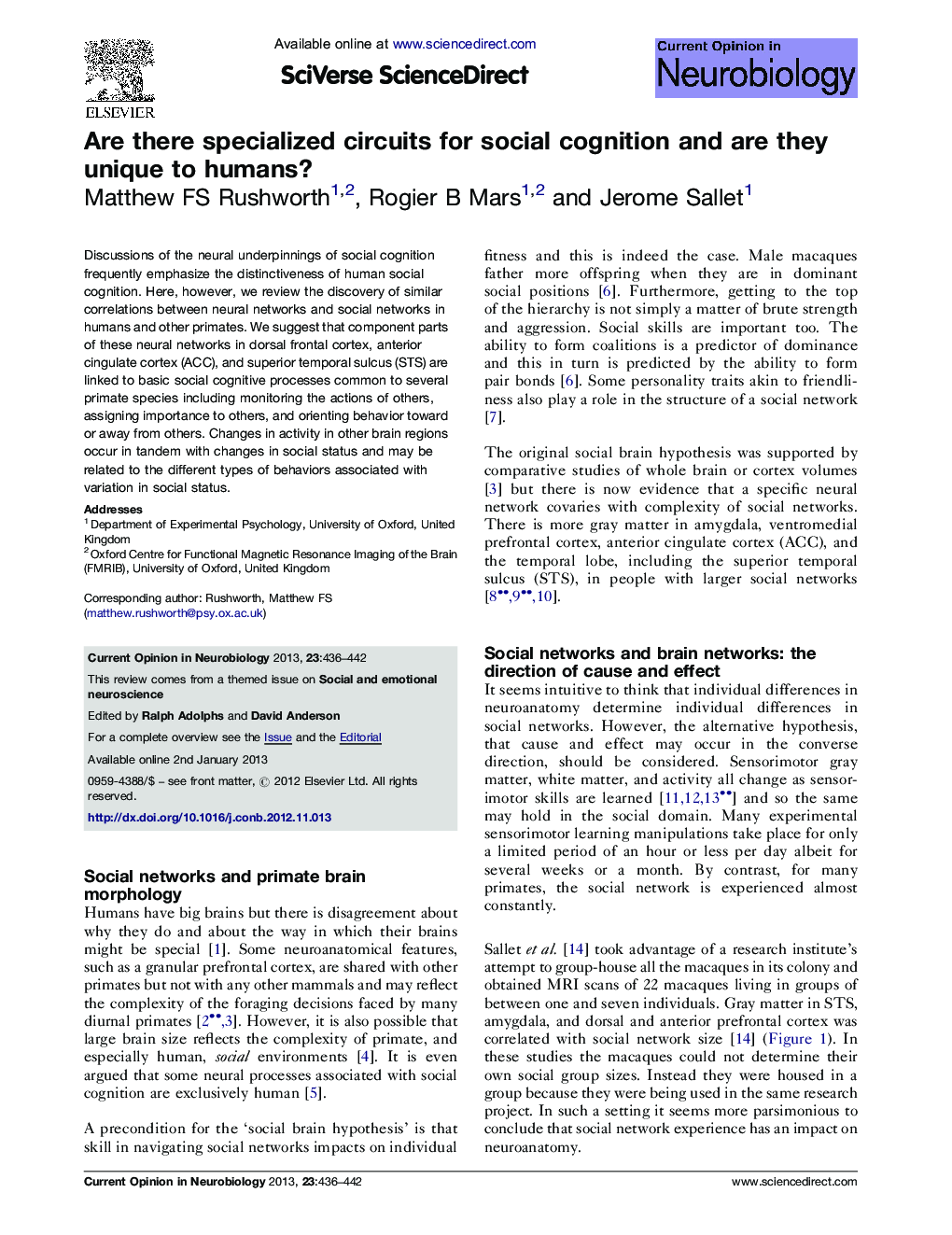| Article ID | Journal | Published Year | Pages | File Type |
|---|---|---|---|---|
| 6267190 | Current Opinion in Neurobiology | 2013 | 7 Pages |
Discussions of the neural underpinnings of social cognition frequently emphasize the distinctiveness of human social cognition. Here, however, we review the discovery of similar correlations between neural networks and social networks in humans and other primates. We suggest that component parts of these neural networks in dorsal frontal cortex, anterior cingulate cortex (ACC), and superior temporal sulcus (STS) are linked to basic social cognitive processes common to several primate species including monitoring the actions of others, assigning importance to others, and orienting behavior toward or away from others. Changes in activity in other brain regions occur in tandem with changes in social status and may be related to the different types of behaviors associated with variation in social status.
⺠Social cognition brain regions can be identified in both humans and macaques. ⺠Their structure and activity covary with complexity of the social environment. ⺠Some aspects of human social cognition, such as 'Theory of Mind', may be unique. ⺠Other aspects may be related to social cognition in other primates.
